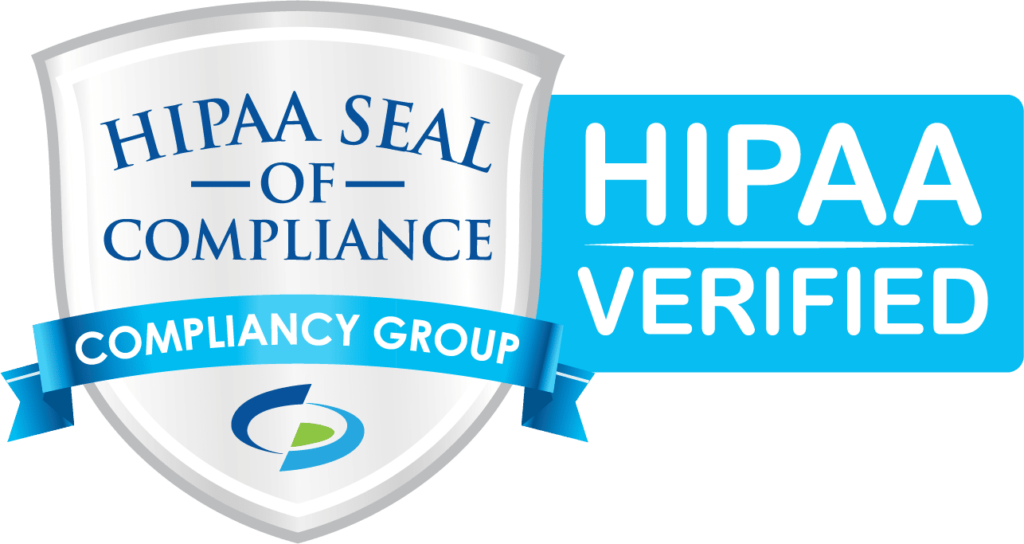When you find yourself dealing with the aftermath of an accident, coordinating your medical care can seem overwhelming. Prioritizing an immediate medical evaluation is essential to uncover any hidden injuries that might not be apparent right away. But how do you guarantee you’re not missing any critical steps in your recovery journey? From monitoring symptoms and scheduling tests to adhering to treatment plans, each decision plays a pivotal role in your healing process. As you navigate this complex situation, understanding the importance of thorough documentation and mental well-being can make a significant difference. But what about protecting your legal rights?
Seek Immediate Medical Evaluation
In the aftermath of an accident, it’s important to prioritize seeking immediate medical evaluation, even if you feel fine. Accidents can release a rush of adrenaline that masks pain, leading you to believe you’re unscathed.
However, hidden injuries like internal bleeding or concussions may not manifest for hours or even days. By seeking immediate medical attention, you guarantee that any potential health issues are identified early, mitigating the risk of long-term complications.
A thorough medical assessment is critical. Diagnostic tests such as X-rays or CT scans offer an extensive evaluation of your condition, helping to pinpoint any injuries that aren’t immediately apparent.
This early medical attention isn’t just about your health; it’s also significant for legal claims. Accurate medical records establish a clear connection between the accident and your injuries, strengthening your position in personal injury cases.
Insurance companies often scrutinize the timing of treatment; delayed attention can cast doubt on the legitimacy of your injuries.
Understand Injury Symptoms
While you’ve taken the vital step of getting an immediate medical evaluation after an accident, it’s equally important to understand the symptoms that might arise in the following days. Injuries such as concussions or internal bleeding often don’t show up right away. You may initially feel fine, but symptoms like headaches, dizziness, neck pain, or fatigue can surface later, indicating serious conditions that require prompt medical attention.
If you experience numbness in your arms or legs, it could point to neurological issues or nerve damage. These require immediate care to avoid long-term complications.
Persistent pain, especially in your back or joints, should also be evaluated carefully. This can help rule out fractures or soft tissue injuries that, if left untreated, might develop into chronic conditions.
Don’t overlook psychological symptoms. Anxiety or PTSD following an accident can impact your mental health considerably. A thorough assessment that addresses both physical and mental aspects will aid in crafting an effective treatment plan.
Seek medical care promptly for any concerning symptoms and adhere to follow-up care recommendations to guarantee a complete recovery. Prioritizing both your physical and mental well-being is essential.
Schedule Diagnostic Tests
After an accident, scheduling diagnostic tests like X-rays, CT scans, or MRIs becomes an important next step in your medical care journey. These tests are essential for uncovering hidden injuries, such as fractures or internal bleeding, that mightn’t show symptoms immediately. Your medical provider will guide you on which tests are necessary based on your reported symptoms during the initial evaluation.
Timing is everything. Promptly scheduling diagnostic tests can help establish a clear connection between your injuries and the accident, which is significant for any legal claims you may pursue. Accurate documentation of these tests in your medical records serves as key evidence in personal injury cases, supporting your claims and ensuring you get the compensation you deserve.
It’s important to follow through with all recommended diagnostic tests and evaluations. Doing so allows your healthcare team to develop effective treatment plans that cater to both your immediate and long-term health needs.
Follow Treatment Plans
Successfully managing your recovery journey often hinges on diligently following your prescribed treatment plans. Adherence to prescribed treatment is essential not only for your medical care but also for mitigating the severity of your injuries. By sticking to your treatment plan, you can greatly reduce the risk of chronic pain or long-term disabilities.
Regular follow-up appointments offer opportunities for healthcare providers to monitor your healing progress and adjust your treatment as necessary based on your recovery status.
Keeping detailed medical records of all treatments, medications, and symptom changes is important. These records not only assist in your personal recovery but also strengthen your legal claims by documenting the connection between the accident and your ongoing medical care.
Engaging with specialists, such as physical therapists or orthopedic doctors, as part of your treatment plan, can enhance recovery outcomes and address specific injuries more effectively.
Compliance with medical advice, including prescribed exercises and lifestyle modifications, is critical. Your commitment to health improvement will reflect positively on your insurance claims, demonstrating your dedication to recovery.
Following your treatment plan meticulously isn’t just about healing; it’s about ensuring a thorough, well-documented recovery process.
Document Medical Interactions
Adhering to your treatment plan is only part of the equation in managing your recovery journey effectively. It’s equally important to document medical interactions thoroughly.
Start by maintaining detailed records of all medical visits, including dates, the names of healthcare providers, and the purpose of each appointment. This thorough documentation guarantees your treatment timeline is clear. Make certain to keep copies of all medical bills and insurance statements to substantiate claims and demonstrate the expenses incurred due to your injuries.
Document every communication with medical professionals, noting discussions about symptoms, treatment plans, and follow-up care. This helps create a clear narrative of your medical journey.
Photographs of visible injuries taken immediately after the accident and throughout your recovery can visually document the progression of your condition.
Verify your medical records accurately reflect the details of the accident, including descriptions of injuries and treatments received. This is essential when medical records become evidence in a legal claim or insurance process.
Such documentation can support your injury attorney’s efforts to secure the compensation you deserve. By taking these meticulous steps, you can navigate the complexities of seeking medical attention with confidence and clarity.
Address Psychological Health
In the aftermath of an accident, it’s imperative to recognize the importance of addressing psychological health alongside physical recovery. Psychological trauma, including conditions like PTSD and anxiety, can surface unexpectedly, necessitating early evaluation by mental health professionals. They play a significant role in identifying and treating these psychological conditions, which, if left unaddressed, could lead to chronic mental health issues.
Start by monitoring your mental health closely. Symptoms such as depression, irritability, or emotional numbness mightn’t appear immediately. It’s important to seek professional help at the first sign of distress. Early identification and intervention can greatly impact your emotional recovery, preventing long-term complications.
Mental health professionals can develop tailored treatment plans, ensuring you receive the necessary support and counseling. Consider keeping a detailed diary of your emotional responses and experiences following the accident. This record will offer valuable insights for mental health professionals, allowing them to customize your treatment effectively.
Accessing psychological support, like therapy, can help you process the trauma and promote a holistic approach to recovery. Remember, addressing psychological health is as important as healing physically, ensuring a thorough path to well-being.
Consult Legal Professionals
After experiencing an accident, consulting a personal injury lawyer becomes an important step in safeguarding your rights and securing the compensation you deserve. By reaching out to legal professionals, you guarantee that your case is handled with the expertise needed to navigate complex insurance and liability issues.
An experienced accident lawyer can help establish a clear connection between your injury and the incident, a crucial component in personal injury claims that can greatly impact the outcome of your case.
It’s essential not to delay this step. Timely legal advice is key to protecting your rights and adhering to filing deadlines. This guarantees you don’t miss out on the compensation necessary for your recovery.
Your health should always come first, so prioritize your health and seek medical care while allowing your lawyer to handle negotiations with insurance companies.
Legal professionals can also guarantee that your medical treatment isn’t dictated by the at-fault party’s insurance. This means you’ll receive the necessary care without unnecessary delays.
Many lawyers offer free consultations, so take advantage of this opportunity to discuss your case specifics and get preliminary guidance on your legal rights and options without any financial commitment.
Manage Insurance Claims
Maneuvering the complexities of managing insurance claims after an accident requires diligence and attention to detail. First, seek medical attention as soon as possible, as it underscores the significance of seeking medical care and supports your car accident claim.
Document every aspect of the injuries you sustained, including detailed medical treatments and expenses. These records are essential for asserting your health and legal rights and can help prevent disputes with your insurance company.
Communicate clearly and promptly with your insurer, providing extensive information about your injuries and treatment timeline. This transparency is critical to avoid raising suspicions with insurance adjusters, which could jeopardize your claim’s legitimacy.
Delays in treatment can be detrimental, possibly resulting in chronic conditions if injuries are left untreated.
Ensure your medical records accurately reflect the accident and its impact on your health. Discrepancies in these records can lead to legal and insurance disputes or even denial of your claim.
Consulting a personal injury lawyer can be beneficial; their expertise can guide you through the intricate legalities, boosting your chances of fair compensation.
Conclusion
After an accident, it’s essential to prioritize your health and rights. Start by promptly seeking medical evaluation to uncover hidden injuries. Stay vigilant about your symptoms and schedule necessary tests. Follow your treatment plan closely and document every medical interaction. Don’t overlook your mental health; it plays a significant role in recovery. Engage with legal professionals early to protect your rights and streamline insurance claims. By taking these steps, you’ll guarantee a smoother, more complete recovery journey.



